On 15 June, the March quarter national accounts were released, revealing that New Zealand’s real GDP declined by 0.1% in the March quarter, following a 0.7% decline in the December quarter.
This resulted in New Zealand experiencing two consecutive quarters of negative growth, putting the country in a “technical recession”.
Because of New Zealand’s rapid population increase, real GDP per capita fell 1.1% in the December quarter and 0.7% in the March quarter (see red bars in chart below).
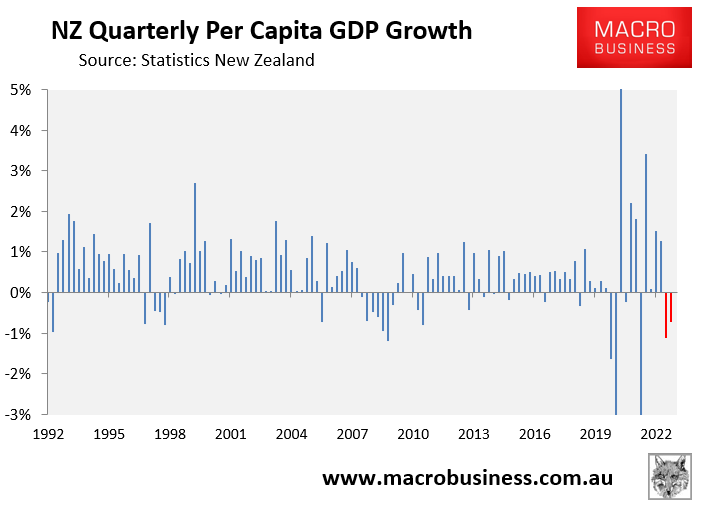
To make matters worse, New Zealand’s per capita real gross national disposable income (NDI) – a better gauge of living standards – fell by 2.2% and 0.9% in the December and March quarters, respectively:
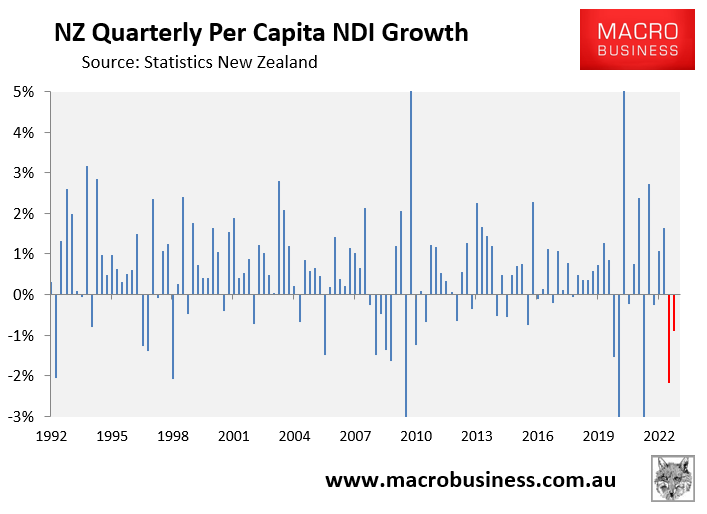
Westpac recently reported that household consumption – the main driver of the New Zealand economy – is falling, as evidenced by real retail sales:
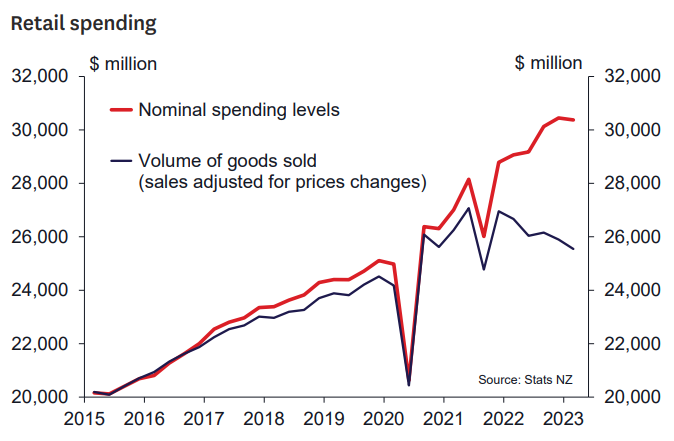
Westpac also forecasts that per capita household spending will fall by 2% over 2023 and 2024 combined, which will place further downward pressure on GDP growth:
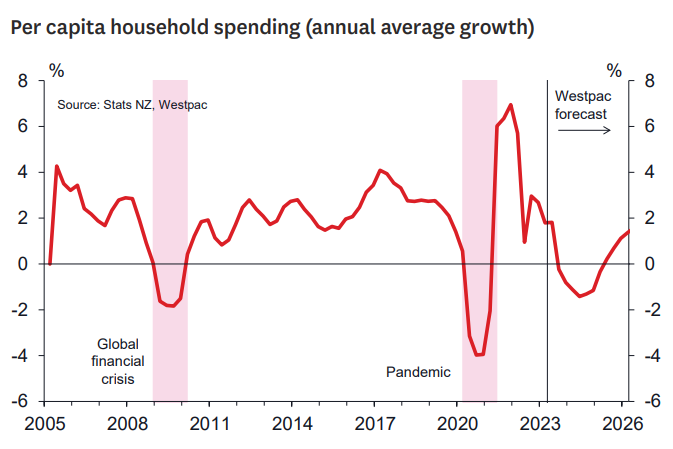
The latest ANZ-Roy Morgan consumer confidence report is out and shows that confidence is tracking at recessionary levels:
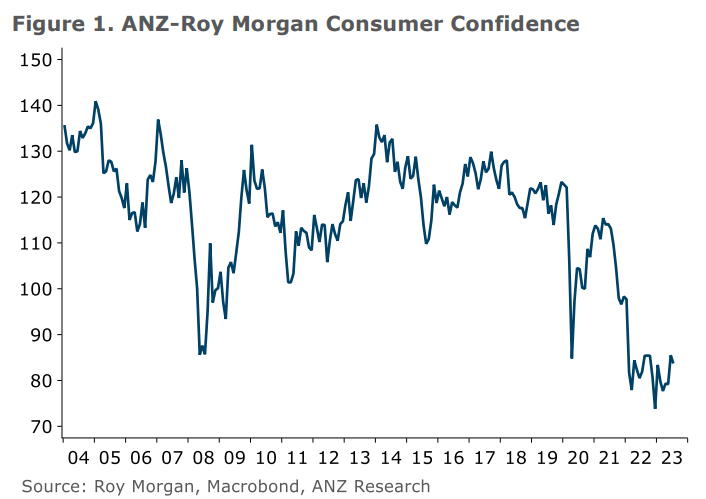
Most importantly, “a net 39% think it’s a bad time to buy a major household item, a sharp 12-point fall, to be back around its lows (excluding lockdowns)”.
“That’s the best spending indicator in the survey, and suggests consumers are indeed “cooling their jets””, notes ANZ.
Not surprisingly, “households are being buffeted currently” by “the rapid rise in mortgage rates and the ongoing rollover from lower rates”:
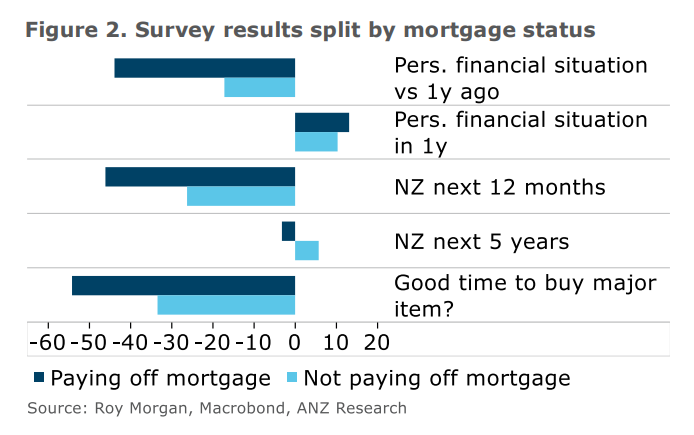
“Figure 2 shows that those respondents who are paying down mortgages are more pessimistic on every question except for how things might look for them personally a year from now – which is consistent with expectations that interest rates may be lower by then”, notes ANZ.
Indeed, Westpac estimates that ‘effective’ mortgage rates paid by New Zealand households will rise a further 150 basis points into 2024 as fixed rate mortgages expire:
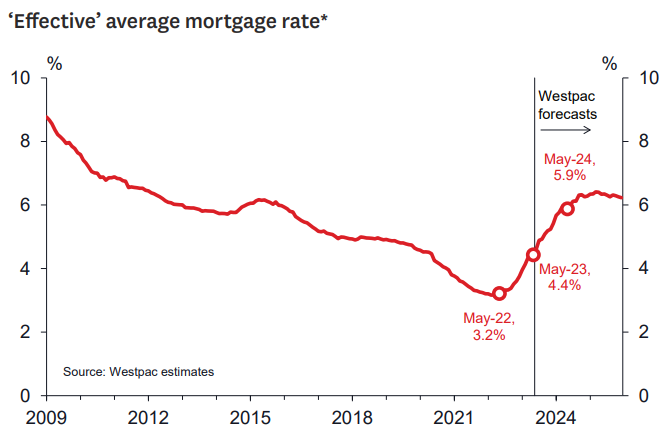
Therefore, there is significant monetary tightening ‘built in’ to New Zealand’s economy, which will continue to constrain household spending and GDP growth.
The Labour government is attempting to boost growth by increasing immigration to historic levels:
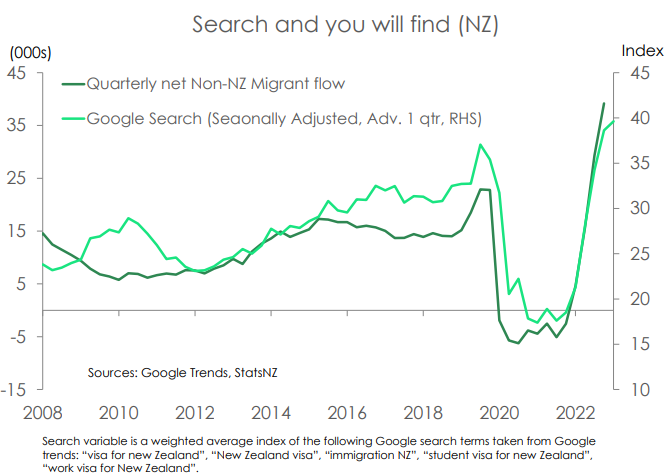
As a result, it has delivered a minor technical recession but a severe per capita slump.

